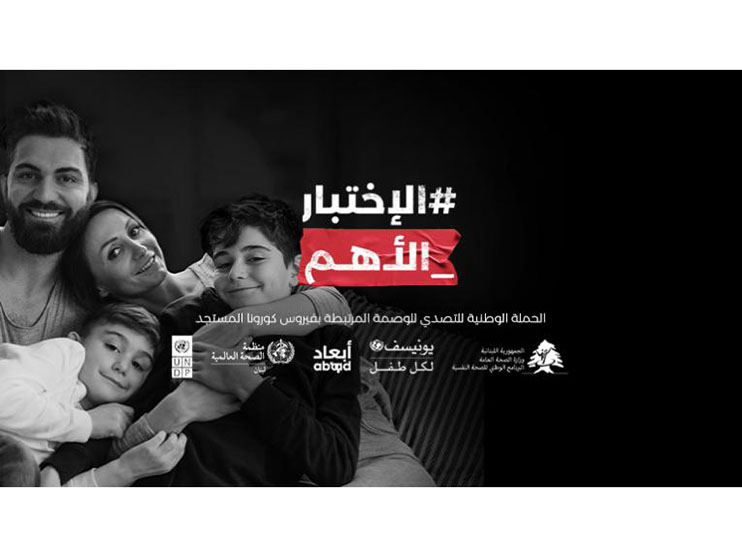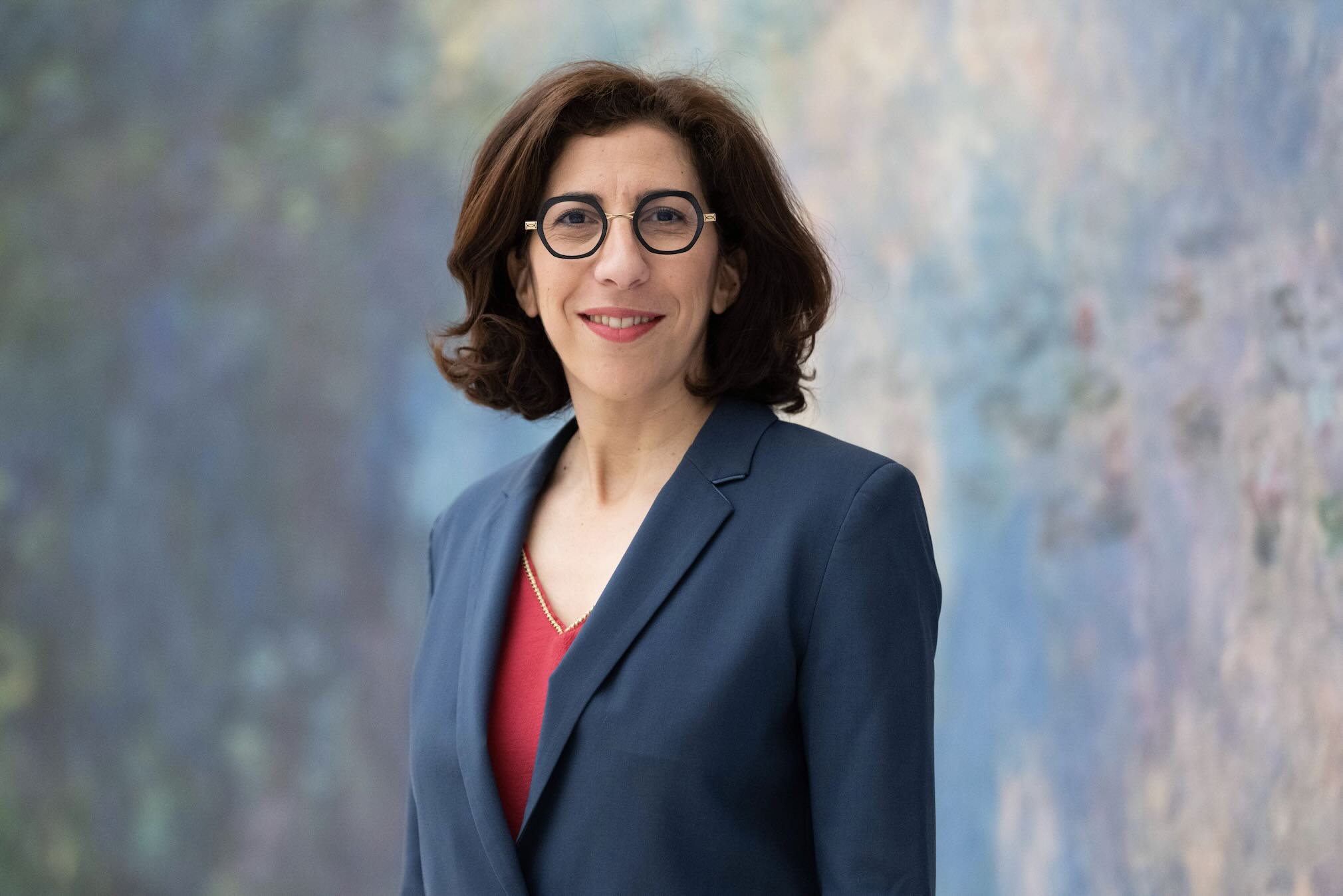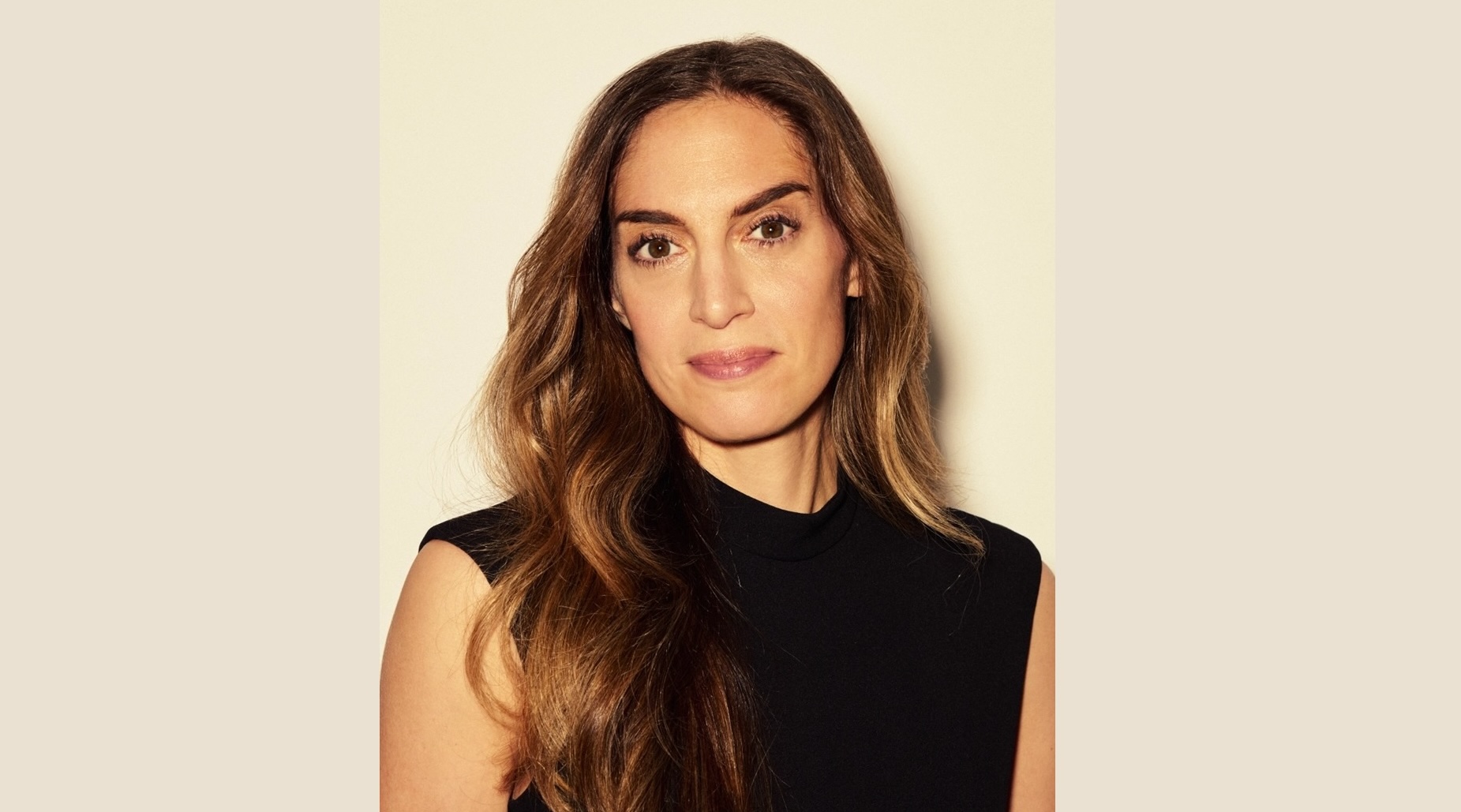News - News In Brief
#TheRealTest: Launching Lebanon’s anti-stigma campaign
June 22, 2020
.jpg) Advertisement
AdvertisementThe Ministry of Public Health (MOPH) through the National Mental Health Programme, Abaad, United Nations Development Programme, the United Nations Development Programme (UNDP), UNICEF and the World Health Organization are joining forces together to break the stigma associated with the novel corona virus (COVID-19). Under the slogan “#TheRealTest”, a national campaign is launched on several TV outlets with a synchronized introduction of primetime news and on social media.
Quarantine, social and physical distancing, lockdown, testing positive and many other terms have undoubtedly infiltrated people’s minds around the globe. As the virus continues to be a present reality, it has caused fear across continents. This fear has also provoked social stigma and discriminatory behaviours against anyone perceived to have been exposed to the virus.
Stigma is defined as a negative association linked to a person or a group of persons who might share certain characteristics or a certain disease, in this case, the coronavirus. This means that people are being labelled, stereotyped and subject to discrimination because of a potential exposure to the virus. Stigma and discrimination can make an already stressful situation far more difficult and detrimental to the mental health of affected persons and their families.
Yet, the stigma surrounding COVID-19 has not only been damaging to those with the disease, but also to their families and friends as well as to society’s cohesion and effort to curb the outbreak by preventing people who exhibit the symptoms to seek care in the first place for fear of being subject to discrimination.
“With millions of people around the globe hit by COVID-19, it is safe to say that the virus itself does not discriminate. However, the social stigma associated with the coronavirus disease is particularly affecting women and girls, especially in vulnerable communities, causing them to hide the illness and avoid seeking health care, to avoid discrimination & risk of violence & femicide. We must take into account specificity of those affected in emergency response planning and create a protective containing environment in which both the disease and its impact can be discussed and addressed openly” said Ghida Anani, Founder & Director of ABAAD.
“While it appears that many children may not be at risk if infected by COVID-19, this crisis has turned their lives upside down in many ways and they are at risk of facing stigma and discrimination if any member of their family or community is tested positive. This, in addition to the fear and loneliness they experience when they are isolated because a relative has tested positive. The coronavirus does not distinguish origin, culture, age or gender and as we recover from this outbreak, we must build a society based on tolerance, kindness and inclusion of everyone”, said Yukie Mokuo, UNICEF Representative in Lebanon.
“The real test is beyond testing positive or negative for COVID-19. #TheRealTest is to stand together and show our kindness towards one another. Fear is normal and legitimate - Fear for the health of oneself, or that of loved ones, fear for the future – but it is in our power to ensure that this fear is not channelled through negative behaviours against others”, said Rabih El Chammay, head of the National Mental Health Programme at the MOPH, speaking of the main message of the campaign, launched in line with the national action plan for the mental health response to COVID-19. The campaign also aims to provide a platform to showcase the stories of solidarity and empathy for one another, which we cannot afford to lose.
In collaboration with several TV outlets, the campaign was kicked off through simultaneous primetime news introductions during which news anchors read the campaign’s manifesto and lent their voices to amplify the message included in the campaign’s main film. The initiative is extending to the digital realm and will take over the social media platforms of both celebrities and key opinion leaders who will be voicing their messages of hope to persons affected by COVID-19. People across Lebanon will be engaged and asked to share their own messages of hope and local stories of solidarity to amplify them. The initiative will also go to the streets with messages of solidarity with the engagement of municipalities and through various outlets. And to support the media in their instrumental role in the response to COVID- 19 from increasing awareness, to decreasing stigma and helping people cope with stress, a tip sheet on how to report COVID-19 related news will be shared with media professionals.
“Stigma and discrimination towards one person are a risk to all people’s physical and mental health. Let us work together to support our children, family, friends, neighbours and frontliners in the response to COVID-19. Let us build back a better society.” said UNDP Lebanon Director Celine Moyroud.
“COVID-19 has shaken our worlds and spread fear amongst our communities, but it has also given us an opportunity to unite together despite our differences. Together we can spread facts instead of fear, together we can fight stigma and speak up for those affected, together we can build a better community”, said Dr Iman Shankiti, WHO Representative in Lebanon.
As emphasized by Minister of Public Health Dr Hamad Hassan, “This crisis is affecting everyone, and we must all play our part. For the Ministry of Public Health, mental health is at the core of the national response to COVID-19. Tackling stigma, supporting persons and communities through encouraging solidarity and acts of kindness serve both physical and mental health.”



.jpg)


.jpg)







